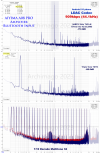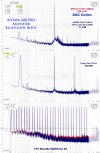quadratique
Member
- Joined
- Feb 1, 2024
- Messages
- 5
- Likes
- 3
Hi All, I am new to to hifi, about to buy my first amp and speaker. I am currently considering Arcam A5/A15/A25 with JBL HDI-1600 or Revel M16 (but the later seems less available around here). My main issue is that I would mostly listen to music from laptop. Using an A5 with bluetooth seems like a convenient idea. Many audiophiles claim bluetooth is bad. (But they also claim quality to power cables and expensive speaker cables, which have been debunked here many times.) my assumption would be that bluetooth is digital, so it shouldn't really matter how the digital signal gets to the dac. Are there any facts/measurements/science about bluetooth audio quality over coax/toslink? Or is this yet another myth? (Most of my music is CD quality.)
In other words, does it make sense to buy a USB > coax/toslink bridge like Topping D10s even if I could connect directly via bluetooth?
thanks
In other words, does it make sense to buy a USB > coax/toslink bridge like Topping D10s even if I could connect directly via bluetooth?
thanks
Last edited:



